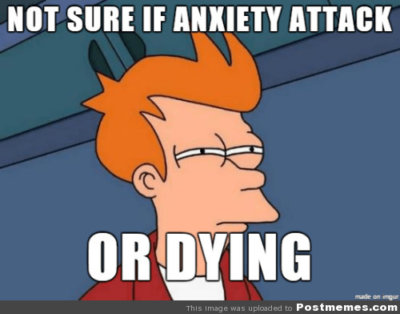What’s Wrong With Me?

Photo by Bailey’s Junk for Flickr
by Ruth Nina Walsh
Sometimes we feel as though things just aren’t right emotionally, but we can’t put our finger on the problem. We are left endlessly asking, “What is wrong with me?”
“What’s wrong with me?”
It’s often difficult to peel back the layers of our own emotions to find out the answer. There may be many overlapping issues, or there may be one core problem. It can help to learn more about the popular reasons we can feel that something isn’t right with us.
Problems with self-esteem
Can you see the good inside of yourself, that you are a valuable and worthy person? Or do you think negatively about yourself?
How we see and value ourselves — our self-esteem – is crucial to all aspects of our lives. And negative, inaccurate beliefs about ourselves are often the answer when we are asking, “What is wrong with me?”
It can be very useful to find a trusted friend and ask them how they see you. Whereas you see yourself as inefficient, they may show you how effective they think you are. While you are worried about how you appear physically, they may well be surprised by this and hold a different mirror up to you.
Ultimately, though, it doesn’t matter how many people admire you or say you are clever or talented unless you believe it. Unless this is how you see yourself, your self-esteem will be negatively affected.
The vital thing to realise is that each of us has innate value, and that it’s important to begin to challenge any beliefs that you hold which are untrue.
Grief, loss, and unresolved issues

photo by Andrea Pacquadio for Pexels
Have you had losses that you haven’t been able to share with others and talk about? Loss of a cherished object or loss of a pet even? Have you ‘soldiered on’ rather than tell others how you truly feel? If this is the case then the answer to ‘What is wrong with me’ might be unexpressed grief.
When we experience grief and loss, be it through a death, loss of a relationship or friendship, or loss of health or a job? We can have problems coping with it and can feel really out of sorts.
This is especially true if we can’t talk about our loss. Perhaps you’ve struggled with that? Maybe there is no one around to offer you support? Or perhaps you’ve found that just keeping things to yourself enables you to function?
The difficulty is the feelings that come with grief and loss really do need to be expressed in some form. Written, spoken, drawn, sung, any expression is valuable. It is in this expression that we manage to assimilate the loss into our lives. Without this, feelings can become trapped inside of us and cause deep unhappiness and sadness. This can continue for years.
Depression
If you’re struggling to find pleasure in your life, and feel weighted down by your emotions? You may be struggling with depression.
There are so many myths about depression it’s important to learn. Depression, like any illness, exists across a spectrum, from mild to extremely severe and life-threatening.
Sometimes we think depression is about a complete inability to function, but ‘walking depression’ shows this is not the case. You could be existing within your life, working and caring for your family but still have depression.
At the more severe end, if you begin to have suicidal thoughts then it’s essential to reach out to someone, whether that is a counsellor, your GP, a trusted friend or family member, or a free and confidential help-line.
Anxiety-related issues
Modern life is so busy, stress is often a daily occurrence. And anxiety can become a by-product if we let stress go on for too long.
At the heart of anxiety is fear. Fear of being unable to cope, fear of the unknown, and fear of uncertainty.
Anxiety can reveal itself in many different ways. It could look like panic attacks, trouble in crowds, trouble leaving home, obsessive thoughts, and compulsive behaviours.
When anxiety takes hold it really often does require professional anxiety counselling. So if you feel you are struggling with these difficult issues it’s recommended to book a private talk therapist, or contact your GP. And organisations like Anxiety UK can offer valuable resources. Self-help tools like relaxation and mindfulness also really help. Try a mindfulness mini-break right now and see for yourself.
From ‘what’s wrong with me’ to ‘I’m okay!’
There are many self-help routes to start to know what you think and feel and get to the heart of what is your issue. This can include journaling, meditating, and creativity. Or you might want to start reading different self-help books that help you know yourself better.
Can therapy help me know what’s wrong?
Absolutely. Counsellors and psychotherapists are used to clients visiting them who can’t actually pinpoint their own problem. A large part of a talk therapist’s role is to help you to uncover the issues at the heart of your problem, rather like uncovering the layers of an onion. With care and time they help you to find what is at the heart of your distress and unhappiness.
Sick of feeling like there is something wrong with you? We connect you to a team of highly regarded therapists in central London locations and online. Or use our booking site to source UK-wide registered therapists for all budgets with reviews by other users.
Ruth Nina Welsh is a former counsellor and coach and runs her own website, “Be Your Own Counsellor & Coach“. She is also the author of “Self-Help: Live a Happier , More Fulfilling, and Meaningful Life”.





